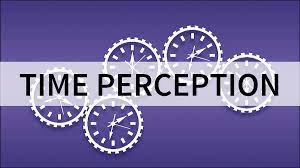
Dogs are intelligent animals that have a complex understanding of the world around them. Their senses allow them to experience the world in a way that is similar to but different from humans. Time perception is a complex process that involves several different parts of the brain, including the cerebellum, which helps us organize and process information, and the parietal lobe, which helps us perceive space. The ability to understand time is a skill that humans develop early, but it is something that dogs seem to have trouble with. Dogs do not see themselves as having a future or past, but rather only the present moment. They live in the moment and do not understand that things will change, or that they will experience something new. This article will discuss how dogs understand time, including how they perceive it and how they use it.
What is time perception?

Time perception is the mental process of becoming aware of time, determining how long events last, and constructing a mental representation of time. Time perception is a complex process that can be affected by many factors, including attention and memory. This includes being able to tell the difference between past, present, and future, as well as knowing what that means in terms of physical movement through space. Time perception is critical for many aspects of human life, including our ability to plan, anticipate, and remember events. Time perception is critical for animals in many ways, such as predicting when prey will appear, anticipating the arrival of food or water, and understanding the seasonal changes in the environment.
How do dogs perceive time?

Time perception is a fascinating phenomenon that can be observed in many different species, but it’s especially interesting in dogs. Here are some of the ways that dogs understand time:
Dogs are born with an innate ability to track time in their minds, which allows them to navigate through their surroundings efficiently. This means that dogs have an understanding of cause and effect, which helps them predict what will happen next. Dogs can tell time based on their internal circadian clock. They have an internal clock that tells them when it’s morning, noon, or night—and they know how long each of those times last. Dogs also don’t have a sense of clock time. They can tell that some things happen more frequently than others (like when you come home), but they don’t understand that those things happen at specific times every day or week. They also don’t have an internal clock telling them when something should be happening—they just sort of expect certain things to happen at certain times because those things always have happened at those times in their lives before.
Dogs have a different sense of time than humans do. They don’t perceive it in terms of seconds and minutes, but rather in terms of moments and experiences. Dogs are much more aware of the past than the future. In fact, they tend to live in the moment as much as possible, and they focus on what’s happening right now. Dogs can recognize patterns in their environment and predict what will happen next. This allows them to anticipate events before they happen—and prepare themselves for those events accordingly Temporal memory is the ability to remember past events and anticipate future ones based on past experiences. Dogs are known for their excellent memory and their ability to remember commands, people, and places over extended periods. This suggests that dogs have some level of temporal memory that allows them to keep track of time in a limited sense.
Dogs experience time through their sense of smell. Dogs have a highly developed sense of smell and use it to gather information about the environment and other animals. It tells them the difference between friends, predators, and prey. They can also use their sense of smell to find food buried in the ground or under snow. The sense of smell is so important for dogs that they can remember smells for years. This is why dogs often seem to know when their owners are coming home before they arrive at the door. Dogs have the ability to detect scents at much higher concentrations than humans do, which means that when your dog comes home from a long walk, it might still smell like it was just taken on.
What things influence how dogs understand time

There are a number of factors that can influence how dogs understand time. For example, how long they have been in certain situations and how often they experience them can affect how well they understand what is happening in those situations. Dogs that have not had the opportunity to experience things for very long may not understand them as well as dogs that have had more exposure.
- The dog’s personality: Some dogs are more active than others, and some have a higher energy level. This means they may have a more challenging time focusing on what’s going on around them, which can make it harder for them to understand the passage of time.
- The dog’s age: As dogs get older, they tend to be less active and have a lower energy level than when they were younger. This can make it easier for them to focus on what’s going on around them and understand the passage of time.
- The situation: If a dog is excited about something happening (like getting fed), it might be hard for him to focus on anything else happening around him (like someone coming into the room). If this happens frequently enough, he’ll start expecting exciting things every few minutes or so.
- Genetics: A dog’s genetic makeup can influence how well he understands time. Dogs with long-lived breeds tend to live for many years and often have a greater understanding of time than dogs with shorter lifespans.
- Training: If a dog is trained to understand certain behaviors in relation to specific times, such as going outside or eating meals, then he will understand when those things should happen and be able to anticipate them as well as know what behavior is expected at those times (e.g., sitting before dinner).
- Experience: Dogs learn through experience, so if they have been exposed to certain things at specific times then they will start to understand what those things mean and when they are supposed to happen (e.g., feeding time).
Conclusion

We hope this article has been helpful in understanding how dogs understand time. Dogs are intelligent beings and are capable of learning, but they process things differently than we do. Understanding how their brains work can help you be more effective in training your dog, and it can even help you understand them as individuals.











